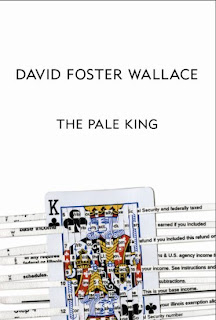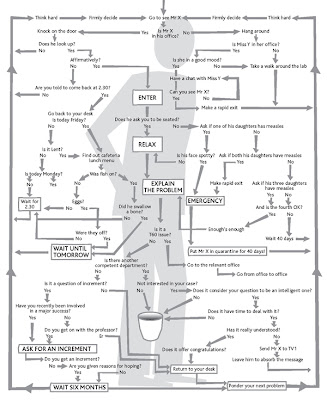Most Australian bookshops have a ‘literature’ section, which has always struck me as a bit odd (most bookstores in the U.S. put all of their general trade fiction together, but have separate sections for ‘genre’ writing like SF and Crime etc.) since, while it seems to reflect the traditional high culture vs. low culture divide, all it really does is effectively ghetto-ise those works marketed as ‘literature’. Not only do I suspect this practice is bad for sales of ‘literary’ works, but also I strongly object to the notion that literature is a genre.
On a practical level, publishers do think of a literature as a genre—specifically as a genre that sells poorly—and I suspect that it is for this reason that so much trade ‘literary’ fiction is so very boring: it has been edited (and often written) in order to be accessible to the market (or, more specifically, to what publishers think the market wants—which ignores the fact that publishers are notoriously incorrect about what the market wants, given the standard claim that 80% of all titles will lose money or break even, while the remaining 20% of titles will generate all of the profit). I suspect, to appropriate—and possibly misuse—a suggestion Mark Davis makes in Gangland, that many publishers also presume the public is dumber than it really is (which is to say that certain pernicious forms of cultural elitism can result as much from cynicism as anything else), and one of the great successes of ‘genre’ writing over the last several decades has been the ability to write into a genre precisely by subverting the rules of that genre in productive ways (see, for example Rjurik Davidson’s great article on science fiction from Overland). But the truth of the matter is that literature as literature bears no relation to the form of the ‘literary novel’ that seems to circulate in Australia (usually a realist novel that more or less feels like a formal implementation of E.M. Forster’s Aspects of the Novel). Indeed, work in any genre can be literature, including essays (Montaigne and Joan Didion), philosophy (e.g. Soren Kierkegaard and Simone Weil), speculative fiction (Neil Stephenson and Ursula K. Le Guin), crime (a genre that many trace back to Edgar Allan Poe!), or any other type of text that includes letters and words.
I’m not making this point to the argue that the novel is ‘dead’ (it’s not dead, but it is a form that is no longer predominant in our culture, which is, as far as I can see, something that will not change anytime soon), but rather to point out the problem with prizes like the Miles Franklin (which is currently being accused of sexism after its second all-male shortlist in three years. This angle to the story has already been aptly covered by Jo Case, Alison Croggon and many others) is that they tend to presume a unitary definition of literature that is based on little more than a set of particular cultural practices. Ultimately, these kinds of awards don’t tell us anything about literature as a space of potential, and everything about how our culture (or at least our cultural gatekeepers) values literature. I’m not interested in criticizing either the Miles Franklin judges or nominees (in fact, I know one of the nominees and would be very pleased to see him win the award on a personal level), but, and this needs to be clear, literary awards bear no relationship whatsoever to that thing called ‘literary merit’. The dream of ‘merit’ is always a right-wing dream, since ‘merit’ is presupposed regardless of the real-world inequalities that, as any sociologist can tell you, shape our world; the future education-level and wealth of children is still most likely to equal that of their parents. Merit, if it exists, is to be found in the next world (if it exists), not in this one.
Books are commodities, pure and simple. Ninety-nine percent of all publishers publish books because they think those books will sell, not because of their ‘literary merit’. The notion of literary merit is a marketing strategy. This doesn’t mean that books can’t mean things to people, too (I think Marx would see this as the difference between exchange value and use value), but to think that books are not part of the world and subject to the same kinds of inequalities as the rest of the world is at best naïve and at worst pernicious. It is no longer enough for institutions like the Miles Franklin—or any other institution—to offer apologetics for exclusionary practices through recourse to simple claims of literary merit (and, to be clear, I’m not claiming that all books are equal; indeed, if all books are equal, then I would have to argue that some books are more equal than others). Disputes such as the current one over the Miles Franklin’s all-male shortlist, rather, should be viewed as opportunities to re-interrogate the way these elite, cultural institutions value literature, and, more specifically, what kinds of literature it is that they value.
Early in 2010, Jacinda Woodhead wrote an essay about the need to incorporate other kinds of voices into literary culture, which also argues that the formal qualities of such diverse writing might need to be different. I think she points to an essential intolerance of formal differences in Australian literary writing. In Kalinda Ashton’s long and interesting interview about political fiction last year, she noted that, while she had never been censored or edited due to political content, per se, writers are ‘much more likely to hear qualms about experimental forms’. My argument is that this suspicion of new or different forms in Australian literature is, in fact, a means of maintaining the status quo and keeping other kinds of difference (whether based on economic status, gender, culture, ethnicity, etc.) out of Australian literature. It’s interesting to note in this context that Modernism (which is often portrayed as exclusively white, bourgeois and male) was a formally experimental shift in literature that also included a very large number of first-rate female authors, such as Virginia Woolf, Gertrude Stein, Marianne Moore, Hilda Doolittle, Mina Loy, Katherine Mansfield, Rebecca West and Djuna Barnes. I’d suggest that part of this is attributable to the fact that, in its formal invention, Modernism (to a small degree) opened a window for other forms of expression to enter into the notion of the literary, which resulted in a greater (though still insufficient) diversity of writers. Unlike for the Modernists, however, the current problem isn’t one of staid Victorian aesthetics, but rather of a market tyranny that convinces cultural gatekeepers that a work can be literary only if it is truly boring (i.e. follows established formulas).
I do believe in the power of literature, but this is because of the open space that literature provides: the potential of language, through highly charged rhetoric, to bring newness into the world. The limitless, inexhaustible possibilities of language enacted in literature remain, quite simply, one of the greatest collective achievements of humanity (but not because it reveals ‘universal, human truths’ and, in fact, quite the opposite: literature, by being language, has the possibility to exceed the limits of the human, a possibility that we experience every time we read a book from the distant past—which is to say, when we speak with the dead). But this possibility rests on the requirement that the notion of literature should not be reified, restricted and limited according to the dictates of an elite institution, a national culture or—worst of all—market mechanisms. The exclusion of new forms of literature is everyone's loss.





